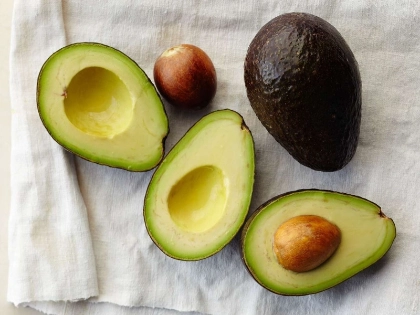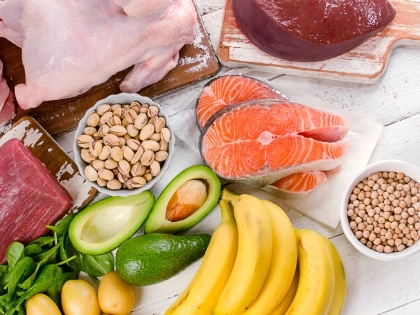Avocados are rich in phytochemicals, vitamins, minerals, and good fats. They can help treat dry or chapped skin, lessen UV damage and ageing, and increase skin tone and suppleness.
In addition, avocados are a great source of biotin, a B vitamin that supports healthy skin and hair and lessens eczema itching. Additionally, it is a good source of potassium, magnesium, folic acid, vitamin A, vitamin C, and vitamin K.
It has a lot of good fats.
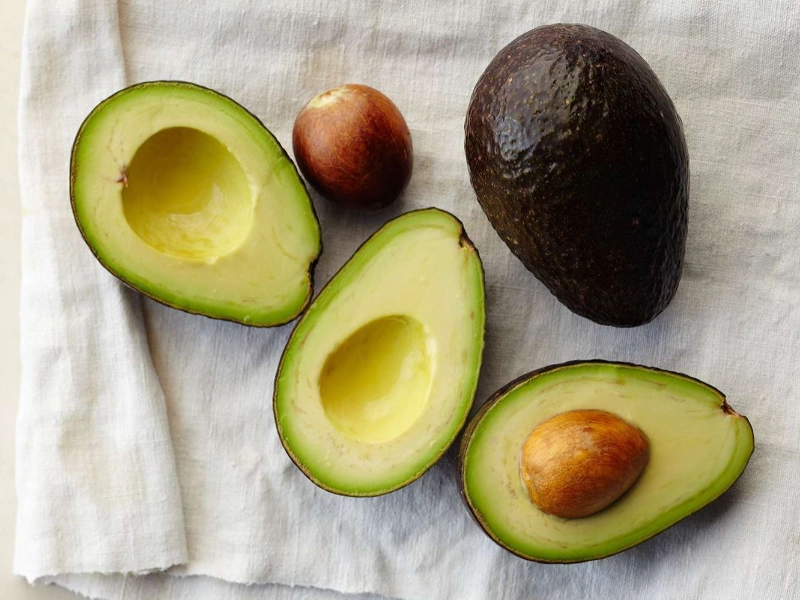
Advertisement
Monounsaturated fats are the healthiest type of fats found in avocados. The phospholipid bilayer, which covers every cell in the body, including skin cells, is essential for maintaining skin's hydration and plumpness.
Monounsaturated fats not only hydrate your skin but shield it from UV rays and pollutants in the environment. Eating avocados also has the added benefit of reducing signs of ageing by aiding healing and lowering inflammation.
According to one study, ladies who ate avocados on a daily basis showed greater skin elasticity on their faces than those who did not. Avocados are also a great source of vitamin E, which helps prevent wrinkles on the face. They also include antioxidants like zeaxanthin and lutein that help shield skin from sun damage. Furthermore, they contain a good amount of niacin, which promotes the skin's natural production of keratin, a crucial protein that aids in maintenance and healing.
Antioxidants abound in it.
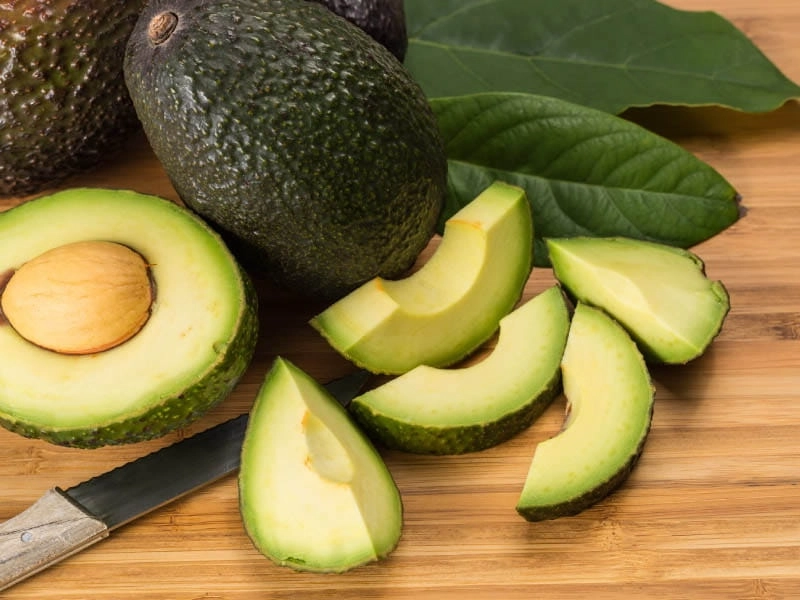
Rich in antioxidants, avocado oil helps keep your skin barrier in good condition. When your skin is injured, it can also aid in its healing. The potassium and vitamin E in avocados help your skin stay hydrated while also reducing redness, puffiness, and inflammation.
The B complex vitamin biotin, which is found in avocados, helps lessen the symptoms of dry skin. Additionally, it has a lot of vitamin A, which can help lighten wrinkles and even out skin tone.
According to a recent study, avocado by-products are an excellent source of polyphenols, which have strong antioxidant properties. 134 chemicals, comprising 36 phenolic acids, 70 flavonoids, 11 lignans, and 2 stilbenes, were identified through the use of LC-ESI-QTOF-MS/MS in order to characterise them. The findings demonstrated that epicatechin, kaempferol, and protocatechuic acid are present in higher concentrations in the peels of reed and wurtz plants.
Your scalp benefits from it.
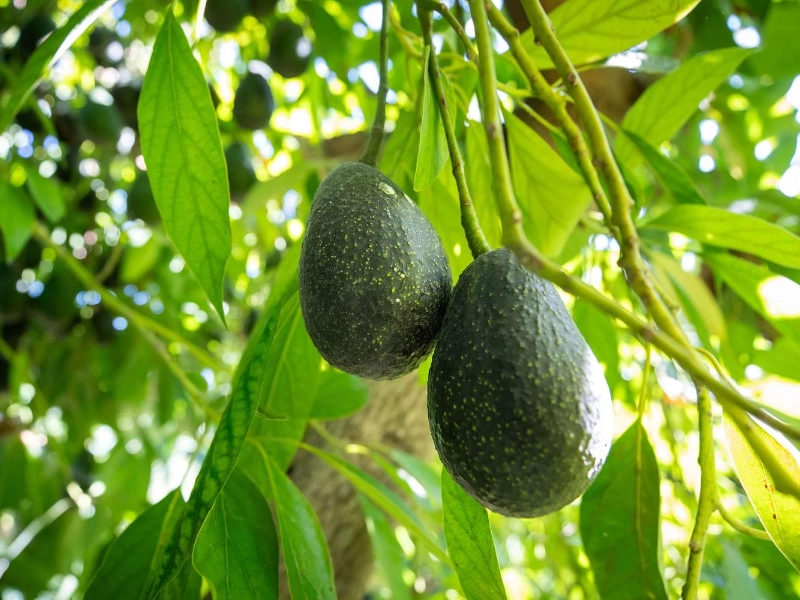
Rich in good fats, avocados can help keep your skin and scalp hydrated. This lessens the likelihood of flaking, itching, and dryness. It also makes your skin appear more vibrant, which enhances your complexion.
Acne may be lessened by its anti-inflammatory qualities. For people whose skin is prone to acne, mashing avocados and using avocado oil as a face mask ingredient can be helpful. Because avocado oil contains a lot of lauric acid and has antibacterial qualities, it can help fight against acne-causing germs.
The antioxidants in avocados can help shield your skin from UV ray-induced oxidative damage. Additionally, they aid in boosting collagen synthesis, which helps lessen wrinkles and fine lines.
If you would like to include avocado in your diet, consider mixing it into a smoothie or salad. It works well as a hair mask as well, soothing your scalp and eliminating dandruff. To get these benefits, using pure, organic cold-pressed avocado oil is the best option.
It benefits your epidermis.
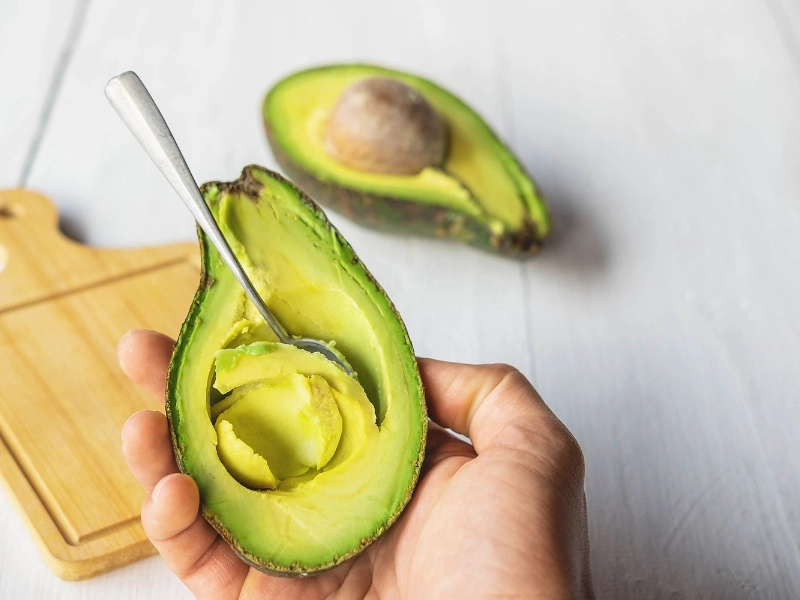
To cure fine lines and wrinkles, apply an avocado face mask. It also aids in lightening dark spots and brightening the skin. Vitamin E, which is abundant in it, moisturises parched skin and evens out its tone. Because of its antioxidants and other minerals, it can also shield your skin from UV damage.
For softer skin, you may also mix a small amount of avocado oil into your preferred moisturiser. It aids in the healing of cuts and burns as well. Rich in fatty acids and good fats, avocados can help lower inflammation. Moreover, it has vitamin C, which promotes the synthesis of collagen. Niacin and carotenoids, which might lessen oxidative stress and guard against the effects of ageing, are also present in it.
Avocados are also a good source of phytochemicals like lutein and zeaxanthin as well as plant sterols such beta sitosterol. They're crucial for maintaining eye health. But for some people, especially those who are allergic to birch pollen, avocados may cause an allergic reaction.









